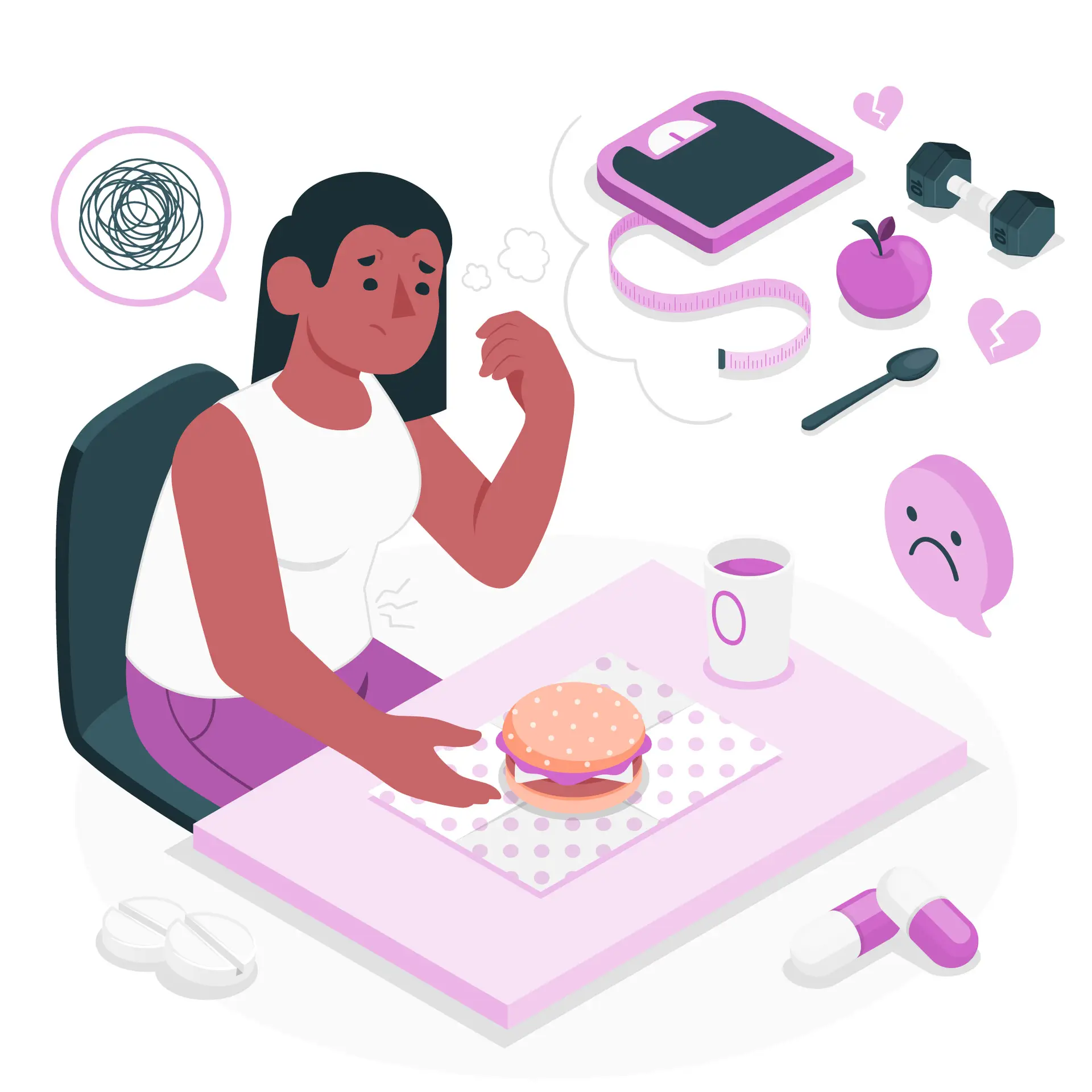Overview
Anorexia Nervosa is a severe eating disorder characterized by an intense fear of gaining weight, distorted body image, and extreme food restriction. Though commonly associated with Western societies, cases of anorexia nervosa are rising in India, particularly among adolescents and young adults. Increased exposure to social media, changing beauty standards, and academic or professional pressures contribute to this trend. Unlike in Western populations, where thinness is often celebrated, Indian cultural factors such as familial expectations and arranged marriage dynamics may further complicate the disorder.
Key Facts
- Prevalence in India: Estimates suggest that 1-3% of Indian adolescents suffer from Anorexia Nervosa, though actual numbers may be higher due to underreporting and lack of awareness.
- Gender Disparity: Women are significantly more affected than men, though male cases are increasing.
- Age Group: Most commonly observed in individuals aged 12-25 years.
- Cultural Influences: Societal emphasis on body image, academic stress, and peer pressure contribute to rising cases.
- Health Risks: Malnutrition, hormonal imbalance, heart issues, osteoporosis, and in extreme cases, mortality.
Symptoms and Patterns
Anorexia Nervosa manifests through various psychological, behavioural, and physical symptoms:
- Psychological Symptoms:
- Intense fear of weight gain despite being underweight
- Distorted perception of body size and shape
- Anxiety and depression
- Behavioural Symptoms:
- Extreme food restriction or avoidance of meals
- Obsessive calorie counting and excessive exercise
- Social withdrawal to avoid eating situations
- Physical Symptoms:
- Drastic weight loss, fatigue, dizziness
- Hair thinning, brittle nails, dry skin
- Irregular menstrual cycles or loss of menstruation (in females)
Risk and Protective Factors
Risk Factors:
- Personal Factors: Low self-esteem, perfectionism, history of childhood trauma.
- Sociocultural Factors: Unrealistic beauty standards, peer pressure, and media influence.
- Family Environment: Over-controlling or critical parenting, history of eating disorders in the family.
- Psychiatric Comorbidities: Anxiety disorders, depression, obsessive-compulsive disorder (OCD).
Protective Factors:
- Strong Support System: Encouragement from family and friends can facilitate early intervention.
- Healthy Coping Mechanisms: Encouraging self-compassion, mindfulness, and resilience training.
- Awareness and Early Detection: School and college programs focusing on body positivity and mental health.
Treatment and Care
Managing Anorexia Nervosa requires a multidisciplinary approach combining medical, nutritional, and psychological interventions:
- Medical Supervision: Regular health monitoring to prevent severe complications.
- Nutritional Therapy: Gradual, structured meal plans under the guidance of a dietitian.
- Psychological Support: Addressing underlying emotional and cognitive distortions.
Psychological and Psychosocial Interventions
- Cognitive-Behavioural Therapy (CBT): Helps modify negative thought patterns regarding body image and food.
- Family-Based Therapy (FBT): Particularly effective for adolescents, involving family members in the recovery process.
- Group Therapy: Peer support through shared experiences can be highly beneficial.
- Mindfulness and Stress Management: Techniques like meditation, yoga, and breathing exercises can aid recovery.
- School and Community Awareness Programs: Educating young individuals on healthy body image and eating habits.
Conclusion
Anorexia Nervosa is an increasing concern in India, affecting young individuals due to societal pressures and personal vulnerabilities. Raising awareness, early intervention, and a combination of medical and psychological care can help in effective recovery. By fostering a supportive and informed society, we can reduce stigma and encourage those affected to seek timely help.


